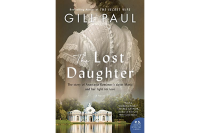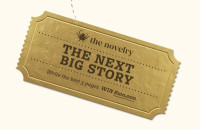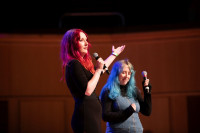Could an A.I. Chatbot Rewrite My Novel?
newyorker.com – Saturday December 10, 2022

During one of my more desperate phases as a young novelist, I began to question whether I should actually be writing my own stories. I was deeply uninterested at the time in anything that resembled a plot, but I acknowledged that if I wanted to attain any sort of literary success I would need to tell a story that had a distinct beginning, middle, and end.
This was about twenty years ago. My graduate-school friends and I were obsessed with a Web site called the Postmodernism Generator that spat out nonsensical but hilarious critical-theory papers. The site, which was created by a coder named Andrew C. Bulhak, who was building off Jamie Zawinski’s Dada Engine, is still up today, and generates fake scholarly writing that reads like, “In the works of Tarantino, a predominant concept is the distinction between creation and destruction. Marx’s essay on capitalist socialism holds that society has objective value. But an abundance of appropriations concerning not theory, but subtheory exist.”
I figured that, if a bit of code could spit out an academic paper, it could probably just tell me what to write about. Most plots, I knew, followed very simple rules, and, because I couldn’t quite figure out how to string one of these out, I began talking to some computer-science graduate students about the possibilities of creating a bot that could just tell me who should go where, and what should happen to them. What I imagined was a simple text box in which I could type in a beginning—something like “A man and his dog arrive in a small town in Indiana”—and then the bot would just tell me that, on page 3, after six paragraphs of my beautiful descriptions and taut prose, the dog would find a mysterious set of bones in the back yard of their boarding house.
After a couple months of digging around, it became clear to me that I wasn’t going to find much backing for my plan. One of the computer-science students, as I recall, accused me of trying to strip everything good, original, and beautiful from the creative process. Bots, he argued, could imitate basic writing and would improve at that task, but A.I. could never tell you the way Karenin smiled, nor would it ever fixate on all the place names that filled Proust’s childhood. I understood why he felt that way, and agreed to a certain extent. But I didn’t see why a bot couldn’t just fill in all the parts where someone walks from point A to point B.
To read the full article on newyorker.com, click here




 Winning writing competitions
Winning writing competitions A matter of perspective
A matter of perspective Vary Sentence Structure
Vary Sentence Structure Writing Fiction about Real People
Writing Fiction about Real People How to Write a Novel, According to 10 Really Good Novelists
How to Write a Novel, According to 10 Really Good Novelists Kate Clanchy: how publishers became the book-burners
Kate Clanchy: how publishers became the book-burners AI is the end of writing
AI is the end of writing ChatGPT showed me just how far it is from writing a blockbuster
ChatGPT showed me just how far it is from writing a blockbuster Writing is a ‘questionable business’, but what to make of John Hughes, one of the most prolific plagiarists in literary history?
Writing is a ‘questionable business’, but what to make of John Hughes, one of the most prolific plagiarists in literary history? 5 Ways ChatGPT Can Improve, Not Replace, Your Writing
5 Ways ChatGPT Can Improve, Not Replace, Your Writing A manifesto for self-publishing authors
A manifesto for self-publishing authors What we learned about... non-fiction writing
What we learned about... non-fiction writing New Literary Agent Listing: Danielle Marshall
New Literary Agent Listing: Danielle Marshall New Literary Agent Listing: James Gill
New Literary Agent Listing: James Gill Straight white author's career finally takes off after he tells woke publishers he's gender queer Nigerian
Straight white author's career finally takes off after he tells woke publishers he's gender queer Nigerian New Publisher Listing: Crowdbound
New Publisher Listing: Crowdbound New Literary Agent Listing: Lauren Liebow
New Literary Agent Listing: Lauren Liebow The Novelry Offers $100,000 Prize to Break Publishing Barriers
The Novelry Offers $100,000 Prize to Break Publishing Barriers The Sunday Post short story writing competition is back for 2025
The Sunday Post short story writing competition is back for 2025 Bestsellers LLC Unveils Data-Driven Publishing Model to Transform Authors into Industry Dominators
Bestsellers LLC Unveils Data-Driven Publishing Model to Transform Authors into Industry Dominators 404 Ink publishing house to close
404 Ink publishing house to close Agents Help YA Authors Find Crossover Success
Agents Help YA Authors Find Crossover Success Submission Grinder Delists Analog
Submission Grinder Delists Analog New Magazine Listing: Blackbox Manifold
New Magazine Listing: Blackbox Manifold New Literary Agent Listing: Ciara McEllin
New Literary Agent Listing: Ciara McEllin New Publisher Listing: Red Planet Books
New Publisher Listing: Red Planet Books New Literary Agency Listing: Betancourt Literary
New Literary Agency Listing: Betancourt Literary
